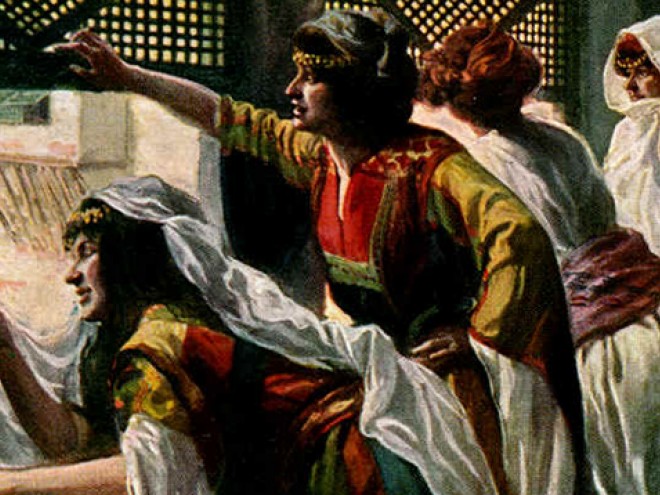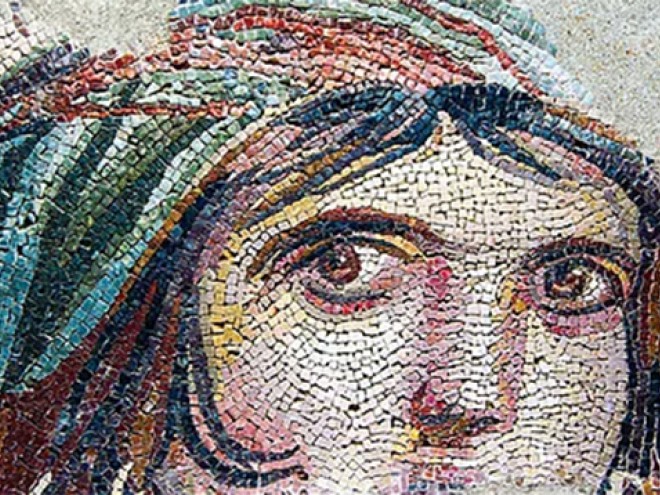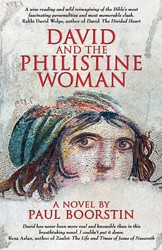
Earlier this week, Paul Boorstin wrote about why he decided to tell David’s story in his novel David and the Philistine Woman. Today, he explores how his background as a documentary film-maker impacted upon his writing. Boorstin has been blogging here for Jewish Book Council’s Visiting Scribe series all week.
As a writer, producer and director of television documentaries, I’ve made National Geographic TV specials about big cats in India and baboons in Africa. I’ve traveled up the Amazon and yes, to Timbuktu in the Sub-Sahara. I’ve made MSNBC documentaries about convicted murderers in supermax prisons, and a History Channel documentary about the Kennedys in the White House.
Working with camera crews around the world under difficult and sometimes dangerous conditions, I learned that what is happening outside the narrow perspective of the camera lens — both behind the scenes, and in the human heart — can be more revealing than what finally appears on film or video. In the same way, when I wrote David and the Philistine Woman, I felt I had to reach beyond the few paragraphs of the narrative in the Hebrew Bible to fully understand its meaning. I was convinced that there was more to the story of how David the boy becomes David the leader of his people.
I drew on lessons I had learned while making documentaries about the history of our own time — in particular, researching and writing The Lost Kennedy Home Movies. This two hour History Channel documentary, shown annually on the anniversary of the JFK assassination, explored the private lives of the Kennedy family. I learned that there were many intimate events that happened just “off camera” — secret loves and power struggles, triumphs and defeats. I realized how much of what takes place is hidden, lost forever to history.
Guided by that experience, while writing David and the Philistine Woman, I set out to reimagine the journey of young David with both a scope and an intimacy that it had not been told before. Over the years, I’ve learned that for a documentary to deliver in depth, it must use both a wide-angle and a close-up lens. That was my mission with this novel: to capture the broad panorama of the epic struggle between the Israelites and the Philistines, while zooming in on the turbulent relationships of David, Jonathan and Saul, and the murderous psyche of Goliath.
Like a powerful documentary, a historical novel can plunge us into a decisive moment in history, make us feel that we are there. It is that intensity, that total immersion in a distant time and place, which I was determined to bring to David and the Philistine Woman.
I have devoted much of my life to the demanding craft of documentary film-making. I respect the power of that unforgiving medium. But a novel can do things that a documentary cannot: evoke the softness of a lamb’s fleece, the delicate aromas of spices in a Jerusalem market, or the stench of rotting corpses on a battlefield. Even more important, a novel can reveal a character’s most private thoughts and feelings too intimate to ever confess on-camera.
I believe that those inner conflicts, the demons that we human beings all wrestle with, have not changed in the thousands of years since that fateful moment when David picked up his stone from the dust of the Valley of Elah. Evil exists now, as it did back then, and that cold fact places a burden on all of us. Because whether or not we look to God for miracles, it is for us to do all that is in our power to fight the good fight in our own time, as young David did in his.
Learn more about Paul Boorstin here.
Paul Boorstin is an award-winning writer and filmmaker whose TV documentaries have examined Biblical historical and environmental subjects for A&E Discovery the History Channel and National Geographic. His screenplays have been produced as motion pictures by Paramount and 20th Century Fox. He is also a blogger for the Huffington Post and a contributor to the Los Angeles Times.
For Paul’s presentation, his wife Sharon, a past JBC cookbook author, has created recipes for a “David’s Feast” featuring the authentic foods and flavors of David’s time.



